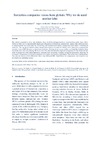Identificador persistente para citar o vincular este elemento:
https://accedacris.ulpgc.es/jspui/handle/10553/70539
| Campo DC | Valor | idioma |
|---|---|---|
| dc.contributor.author | Corado-Simões, Vítor | en_US |
| dc.contributor.author | da Rocha, Angela | en_US |
| dc.contributor.author | Cotta de Mell, Renato | en_US |
| dc.contributor.author | Carneiro, Jorge | en_US |
| dc.date.accessioned | 2020-02-26T19:49:26Z | - |
| dc.date.available | 2020-02-26T19:49:26Z | - |
| dc.date.issued | 2018 | en_US |
| dc.identifier.issn | 2530-5603 | en_US |
| dc.identifier.uri | https://accedacris.ulpgc.es/handle/10553/70539 | - |
| dc.description.abstract | This article is intended to show why borderless firms should be distinguished from traditional born global firms (BGs). Borderless firms have an internationally dispersed configuration of downstream, upstream and support value-added activities, an entrepreneurial team not bounded by a home base, and multinational founders, management teams and/or a multinational workforce. The concept of borderless firms emerged from analysis of empirical evidence and is intended to countervail the excessive focus of BGs literature on downstream activities. Drawing from five case studies, we found that borderless firms may be the result of ex-ante planning. However, most often, the internationally dispersed configuration of value chain activities seems to emerge from effectuation approaches, stemming from networking, including unexpected interactions, which may be envisaged as instruments to overcome constraints or to explore new business opportunities. The article shows that borderless firms present features which differentiate them from traditional BGs. Implications for entrepreneurs and researchers are provided in the concluding section. | en_US |
| dc.language | eng | en_US |
| dc.relation.ispartof | Emprendimiento y negocios internacionales | en_US |
| dc.source | Emprendimiento y negocios internacionales [ISSN 2530-5603], v. 3 (1), p. 21-25 | en_US |
| dc.subject | 5311 Organización y dirección de empresas | en_US |
| dc.subject.other | Born Globals | en_US |
| dc.subject.other | Borderless firms | en_US |
| dc.subject.other | Value chain configuration | en_US |
| dc.subject.other | International activities | en_US |
| dc.subject.other | Effectuation | en_US |
| dc.subject.other | Networks | en_US |
| dc.title | Borderless companies versus born globals: Why we do need another label | en_US |
| dc.type | info:eu-repo/semantics/article | en_US |
| dc.type | Article | en_US |
| dc.identifier.doi | 10.20420/eni.2018.214 | en_US |
| dc.investigacion | Ciencias Sociales y Jurídicas | en_US |
| dc.type2 | Artículo | en_US |
| dc.description.notas | JEL classification: M13, M16, F23, F61 | en_US |
| dc.utils.revision | Sí | en_US |
| dc.identifier.ulpgc | Sí | es |
| item.fulltext | Con texto completo | - |
| item.grantfulltext | open | - |
| Colección: | Artículos | |
Los elementos en ULPGC accedaCRIS están protegidos por derechos de autor con todos los derechos reservados, a menos que se indique lo contrario.
